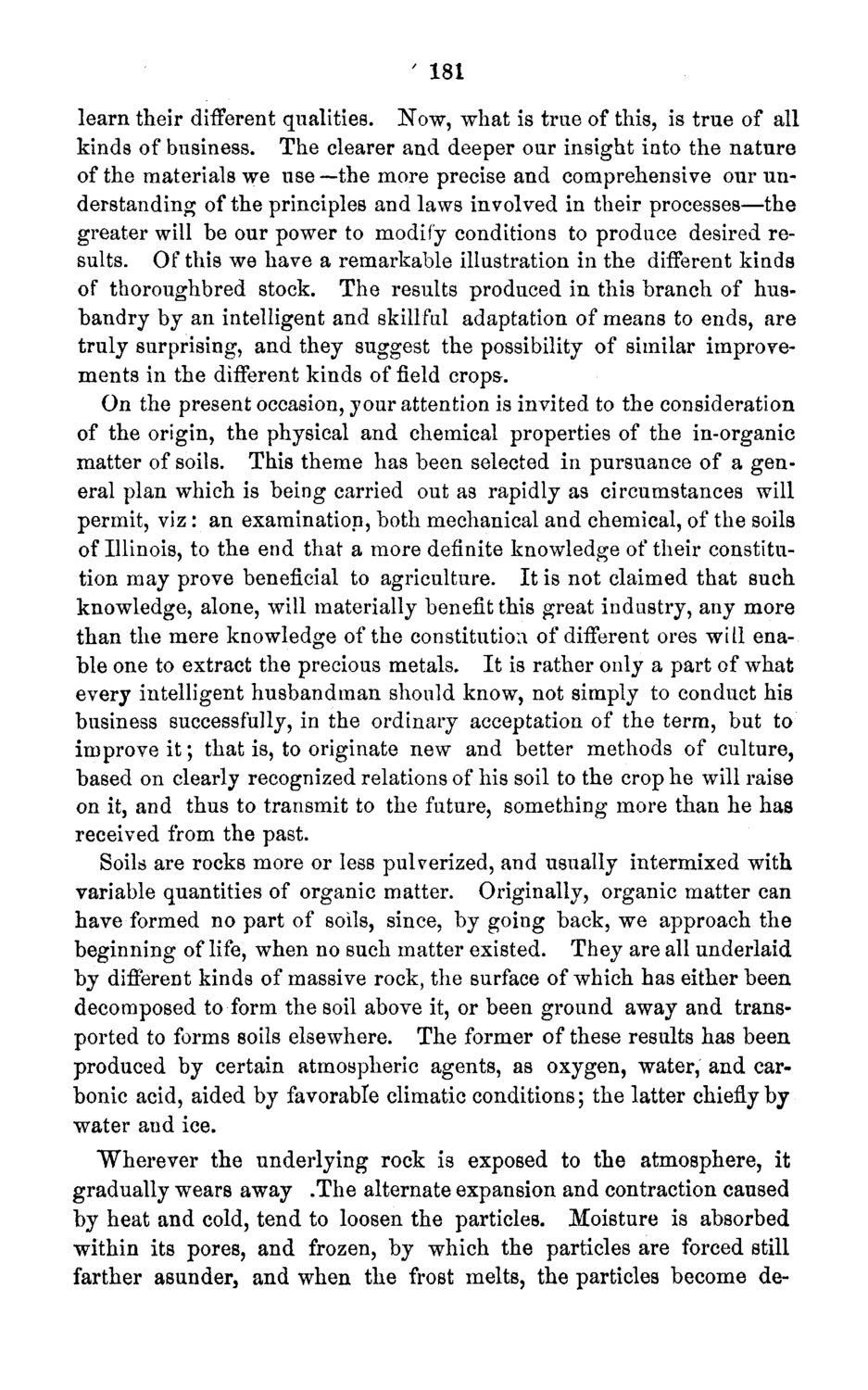| |
| |
Caption: Board of Trustees Minutes - 1871
This is a reduced-resolution page image for fast online browsing.

EXTRACTED TEXT FROM PAGE:
' 181 learn their different qualities. Now, what is true of this, is true of all kinds of business. The clearer and deeper our insight iato the nature of the materials we use—the more precise and comprehensive our understanding of the principles and laws involved in their processes—the greater will be our power to modify conditions to produce desired results. Of this we have a remarkable illustration in the different kinds of thoroughbred stock. The results produced in this branch of husbandry by an intelligent and skillful adaptation of means to ends, are truly surprising, and they suggest the possibility of similar improvements in the different kinds of field crop&. On the present occasion, your attention is invited to the consideration of the origin, the physical and chemical properties of the in-organic matter of soils. This theme has been selected in pursuance of a general plan which is being carried out as rapidly as circumstances will permit, viz: an examination, both mechanical and chemical, of the soils of Illinois, to the end that a more definite knowledge of their constitution may prove beneficial to agriculture. It is not claimed that such knowledge, alone, will materially benefit this great industry, any more than the mere knowledge of the constitution of different ores will enable one to extract the precious metals. It is rather only a part of what every intelligent husbandman should know, not simply to conduct his business successfully, in the ordinary acceptation of the term, but to improve i t ; that is, to originate new and better methods of culture, based on clearly recognized relations of his soil to the crop he will raise on it, and thus to transmit to the future, something more than he has received from the past. Soils are rocks more or less pulverized, and usually intermixed with variable quantities of organic matter. Originally, organic matter can have formed no part of soils, since, by going back, we approach the beginning of life, when no such matter existed. They are all underlaid by different kinds of massive rock, the surface of which has either been decomposed to form the soil above it, or been ground away and transported to forms soils elsewhere. The former of these results has been produced by certain atmospheric agents, as oxygen, water, and carbonic acid, aided by favorable climatic conditions; the latter chiefly by water and ice. Wherever the underlying rock is exposed to the atmosphere, it gradually wears away .The alternate expansion and contraction caused by heat and cold, tend to loosen the particles. Moisture is absorbed within its pores, and frozen, by which the particles are forced still farther asunder, and when the frost melts, the particles become de-
| |